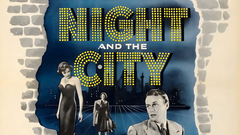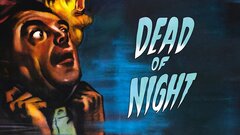A notable British film and stage actress in England where she grew up and Australia which would become her adopted home, Googie Withers became best known for a series of melodramas at Ealing Studios in the 1940s and proved herself a versatile character player in her later years.
She was born to a British career officer and a Dutch mother in a part of India that later became Pakistan. Withers was convent-educated in England, and studied acting and dancing before her stage debut in 1929. While she kept busy in theater during the 1930s, she also broke into films in 1934 with "The Girl in the Crowd." In the mid-30s, she cut back on her stage work to concentrate on her film career, but was confined mostly to second leads in both fairly big films and near "quota quickies" made to fulfill Britain's self-imposed Quota Law. She supported Dolores Del Rio and Douglas Fairbanks Jr. in "Accused" (1936), acted for Michael Powell in the likable low-budgeter "The Love Test" (1935) and played one of Margaret Lockwood's giggly girlfriends in Alfred Hitchcock's superb "The Lady Vanishes" (1938).
Withers finally had better luck in the days of WWII. She starred onstage in "They Came to a City" (1943) which she reprised on film the following year, and attracted attention via films including Powell's and Emeric Pressburger's striking "One of Our Aircraft Is Missing" (1942). Withers would become one of the ideal Ealing Studios heroines, capable of being offbeat, classy and glamorous yet also possessing intriguing rough edges which could work in both comedy and working-class drama.
She played the ever-battling lover Amanda in a 1945 stage revival of Noel Coward's "Private Lives," and a number of film roles called for similar bouts of bitchiness, assertiveness or duplicity. Withers was part of the superb quartet anchoring the sparkling comedy of manners "On Approval" (1943), was fine as a wife whose husband is possessed by a haunted mirror in one of the best stories in the classic horror anthology "Dead of Night" (1945), and plotted to poison a husband in the truly odd and noirish costume drama "Pink String and Sealing Wax" (1945).
Her forte for proletarian heroines came to the fore in "The Loves of Joanna Godden" (1947), as a woman farmer, and she was at her best in Robert Hamer's key postwar noir "It Always Rains on Sunday" (1947), which beautifully teamed her with future husband John McCallum.
Withers and McCallum would work together in several more films, and she also did the popular if silly "Miranda" (1948), but the film was handed to mermaid Glynis Johns. The hospital drama "White Corridors" (1952) was popular as well, but Withers was rather underutilized in "Night and the City" (1950), a visually striking noir which gave most of the footage to visiting US stars.
Withers' starring career gradually petered out in the mid-1950s, but she continued with stage work. She and McCallum relocated to Australia at the end of the decade. Several dozen stage appearances in Australia, England and even the US kept her busy from the 60s on, as did TV work. She returned to features to play the leading role in "Nickel Queen" (1971), directed by her husband, and still later began to appear regularly on PBS and BBC dramas and miniseries, including "Melba" (1989) and "Ending Up" (1993), in the latter as part of a sterling ensemble of gracefully aging British star veterans.
She gave an award-winning performance in "Time After Time" (1985), made for TV but also given theatrical release, and the 90s saw increased feature work from Australia as well. "Country Life" (1994) was a handsome Chekhov adaptation, and Withers teamed well with Noah Taylor (as the teenaged David Helfgott) for the character-driven drama "Shine" (1996).
































































